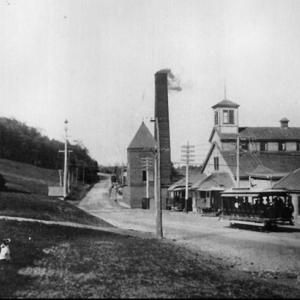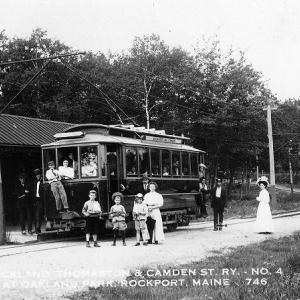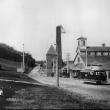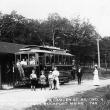Get on the bus: ambitious study of regional transit possibilities begins
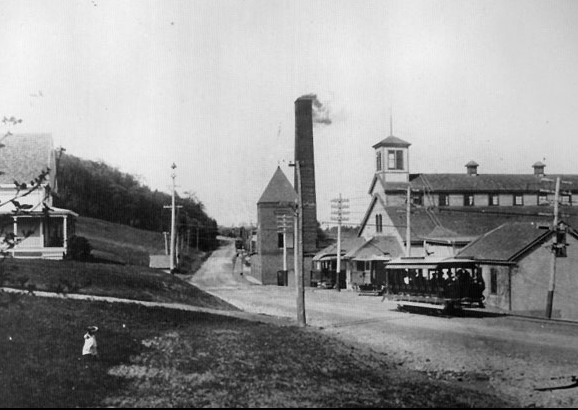 At Power House Hill, at Glen Cove in Rockport, where the Rockland Thomaston and Camden Street Railway Car Barn sat, servicing electric trolleys that ran along what is now Route 1 from Camden to Rockport to Rockland, Thomaston and Warren. Power was generated at Power House Hill to keep the trolleys going on 21 miles of track. Service began in 1892 and ran for 29 years.
At Power House Hill, at Glen Cove in Rockport, where the Rockland Thomaston and Camden Street Railway Car Barn sat, servicing electric trolleys that ran along what is now Route 1 from Camden to Rockport to Rockland, Thomaston and Warren. Power was generated at Power House Hill to keep the trolleys going on 21 miles of track. Service began in 1892 and ran for 29 years.
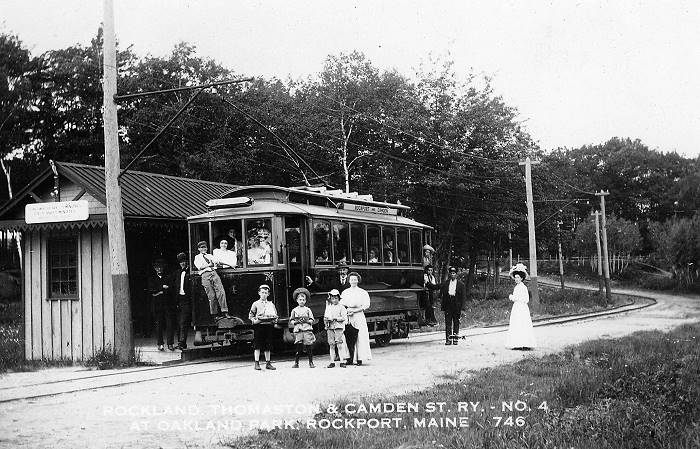 Car No. 4 at Oakland Park in Rockport.
Car No. 4 at Oakland Park in Rockport.
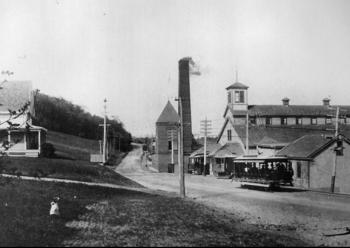 At Power House Hill, at Glen Cove in Rockport, where the Rockland Thomaston and Camden Street Railway Car Barn sat, servicing electric trolleys that ran along what is now Route 1 from Camden to Rockport to Rockland, Thomaston and Warren. Power was generated at Power House Hill to keep the trolleys going on 21 miles of track. Service began in 1892 and ran for 29 years.
At Power House Hill, at Glen Cove in Rockport, where the Rockland Thomaston and Camden Street Railway Car Barn sat, servicing electric trolleys that ran along what is now Route 1 from Camden to Rockport to Rockland, Thomaston and Warren. Power was generated at Power House Hill to keep the trolleys going on 21 miles of track. Service began in 1892 and ran for 29 years.
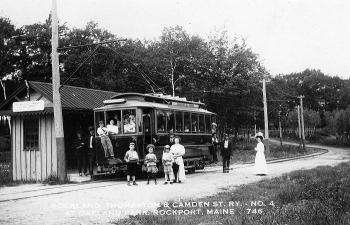 Car No. 4 at Oakland Park in Rockport.
Car No. 4 at Oakland Park in Rockport.
An effort born in conversation 17 months ago to determine if a public transportation system might work again in the Midcoast has resulted in a pending study by California-based transportation consultants.
The Midcoast Transit Committee, consisting of interested citizens from towns along a corridor from Camden to Thomaston, announced Feb. 6 that it hired Nelson/Nygaard Consulting Associates, Inc., of San Francisco, to conduct a $60,000, 11-month feasibility study of a daily transit system here. The study is to begin by the end of February.
“This study is the culmination of hours of conversation and months of meetings as to whether the Camden-Thomaston Route 1 corridor is ready for a direct transit service," said Don White, chairman of the Midcoast Transit Committee and a resident of Camden, in a news release. "Our preliminary indications find many people of all ages would benefit from a daily transit service. The study will determine if such a service would be economically feasible both to the service and area businesses.”
The committee circulated a request for study proposals last year, and Nelson/Nygaard was one of the firms responding.
The transit study is funded by Maine Department of Transportation, Coastal Transportation, and local matching contributions of $1,650 each from Camden, Rockport, Rockland and Thomaston.
The roots of the Midcoast Transit Committee extend back to an Oct. 4, 2011 a discussion at the Rockland Public Library, when public transit advocate Tim Sullivan and Lee Karker of Coastal Transportation raised the idea of bus service. Also attending that meeting were representatives from Friends of Midcoast Maine, Penquis, Pen Bay Healthcare, Gateway 1, and local politicians. They all began to meeting monthly, and a committee was subsequently born on the recognition that public transportation could successfully accommodate a diverse market of users. The committee now comprises two delegates from each of the four involved communities, as well as other interested parties.
At the initial meeting, a list of potentially interested riders were identified and included the elderly, workers, tourists, shoppers, youth with licenses, and environmentalists seeking a smaller carbon footprint.
In the last century, there were trains (electric) and buses that ran along the coast on a regular basis, transportating people from homes to jobs and stores. In 1932, the Tolman Bus Service began, with runs on the hour between Camden and Thomaston, providing a way for the local population to move about the region. Those services faded away with the rise of the automobile. Now, it is Coastal Transportation, a subsidiary of the nonprofit MCH, that provides non-emergency transportation in this area, for the elderly, those with disabilities, and those with low income around Knox, Lincoln, and Sagadahoc counties.
More than a decade ago, Camden experimented briefly with a summer bus service that looped from points to the north and south of the town line to the downtown, in an attempt to alleviate downtown parking and traffic pressures. But the experiment failed, and the buses were sold to the Island Explorer on Mount Desert.
According to the committee, the study will rely on recent economic studies, including a Economic Development Analysis and Action Plan completed in Camden, the 2009 Gateway 1 Corridor Action Plan and other economic and demographic data from the four local communities and state figures. An important component of the study is a public involvement process that will be led by Carol Morris of Morris Communications of Kennebunkport, the release said.
"Morris has considerable experience in the Midcoast having recently assisted in a downtown study in Thomaston and she was on the Gateway 1 management team," according to the committee.
In its proposal, Nelson/Nygaard said the public process would include, “ensuring broad-based involvement in the study process, engaginga variety of interests and stakeholders including employers, human service providers, seniors, advocates for disabled etc. and provide meaningful opportunities for involvement and input during the planning process.”
Don White said, in the release, that public participation sessions will likely take place in each of the four communities during the study.
“The results will rely on transit data from similar demographic areas throughout the country and from stakeholders and users right here in the Midcoast.” White said.
Lee Karker said: “We are fortunate that Nelson/Nygaard has agreed to take on this project. They have a great deal of experience in rural transit projects including a Northern New Hampshire project in the Plymouth Area, and other rural projects in Vermont and New Hampshire. We don’t know in which direction this study will point usor what type of service itwill produce, but we believe that the interest already shown is sufficient to warrant this study.”
-0-
Event Date
Address
United States

